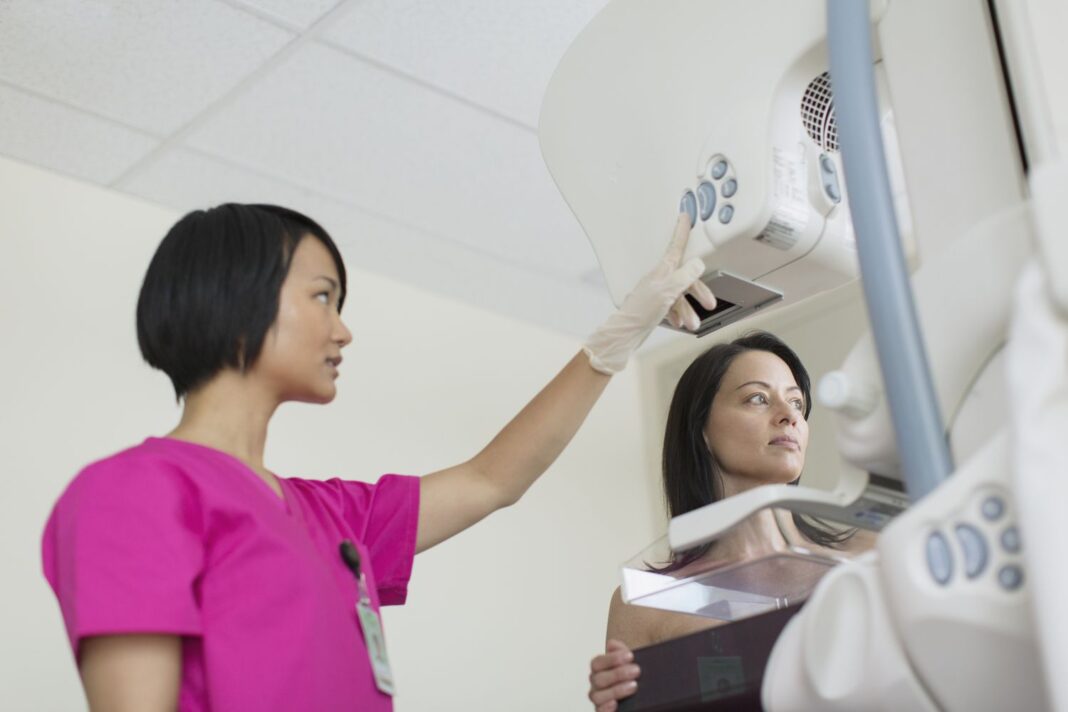Symptoms, Causes, and Diagnosis of Inflammatory Breast Cancer
Inflammatory breast cancer (IBC) is an aggressive and uncommon type of breast cancer that can cause the breast to appear red and swollen, resembling inflammation. According to the National Cancer Institute, IBC accounts for 1%–5% of all breast cancer cases in the United States.
Symptoms
IBC is a fast-growing cancer that can block lymph and blood vessels in the breast, leading to symptoms that develop quickly, often over weeks or months. Common symptoms of IBC include:
- Redness and/or a rash on the skin
- Sudden increase in breast size (as much as a cup size in a few days)
- Skin dimpling similar to an orange peel (called peau d’orange)
- Breast heaviness (one side more than the other)
- Hardness or burning sensations in the breast
- Feeling that one breast is warmer than the other
- Breast pain that is not related to the menstrual cycle
- Nipple retraction or other nipple changes
- Swollen lymph nodes under the arms or above the collarbone
Causes and Risk Factors
Researchers are not sure what causes IBC specifically, but some risk factors have been identified, including:
- Gender: Although IBC affects both males and females, men are far less likely to be diagnosed.
- Age: IBC is more common in younger people (in their 40s or 50s).
- Ethnicity: Black women are at a greater risk for developing IBC than White women.
- Weight: People who are overweight or obese have a slightly increased risk of IBC, but it can impact people of average weight as well.
Diagnosis
IBC can be challenging to identify, but there is a set of criteria to help healthcare providers reach a diagnosis, including:
- Symptoms come on quickly. A mass may or may not be present.
- Symptoms affect one-third or more of the breast.
- Duration of symptoms is less than three months.
- A biopsy (removing tissue to be examined in a lab) shows invasive cancer.
Conclusion
Inflammatory breast cancer is a rare and aggressive type of breast cancer that can cause symptoms such as redness and swelling of the breast. Early detection and treatment are crucial in improving outcomes. If you experience any symptoms or have concerns about your breast health, it is essential to speak with a healthcare provider.
FAQs
- What does inflammatory breast cancer pain feel like?
- Tenderness, redness, warmth, swelling, and itching are symptoms you may feel with IBC.
- Does inflammatory breast cancer show up in blood work?
- No, unfortunately, there is no blood test that shows IBC. A physical exam, biopsy, and imaging are ways to diagnose this disease.
Sources:
[1] National Cancer Institute. Inflammatory breast cancer. https://www.cancer.gov/types/breast/ibc-fact-sheet
[2] American Cancer Society. Inflammatory Breast Cancer. https://www.cancer.org/cancer/types/breast-cancer/about/types-of-breast-cancer/inflammatory-breast-cancer.html
[3] Yamauchi H, Woodward WA, Valero V, et al. Inflammatory breast cancer: What we know and what we need to learn. The Oncologist. 2012;17(7):891–899. doi:10.1634/theoncologist.2012-0039
[4] Moffitt Cancer Center. Inflammatory breast cancer recurrence. https://www.moffitt.org/cancers/inflammatory-breast-cancer/recurrence/
[5] U.S. National Library of Medicine. Study of immunotherapy in combination with chemotherapy in HER2-negative inflammatory breast cancer (PELICAN). https://clinicaltrials.gov/study/NCT03515798
[6] Bertucci F, Lerebours F, Ceccarelli M, Guille A, Syed N, Finetti P, et al. Mutational landscape of inflammatory breast cancer. J Transl Med. 2024 Apr 18;22(1):374. doi:10.1186/s12967-024-05198-4




